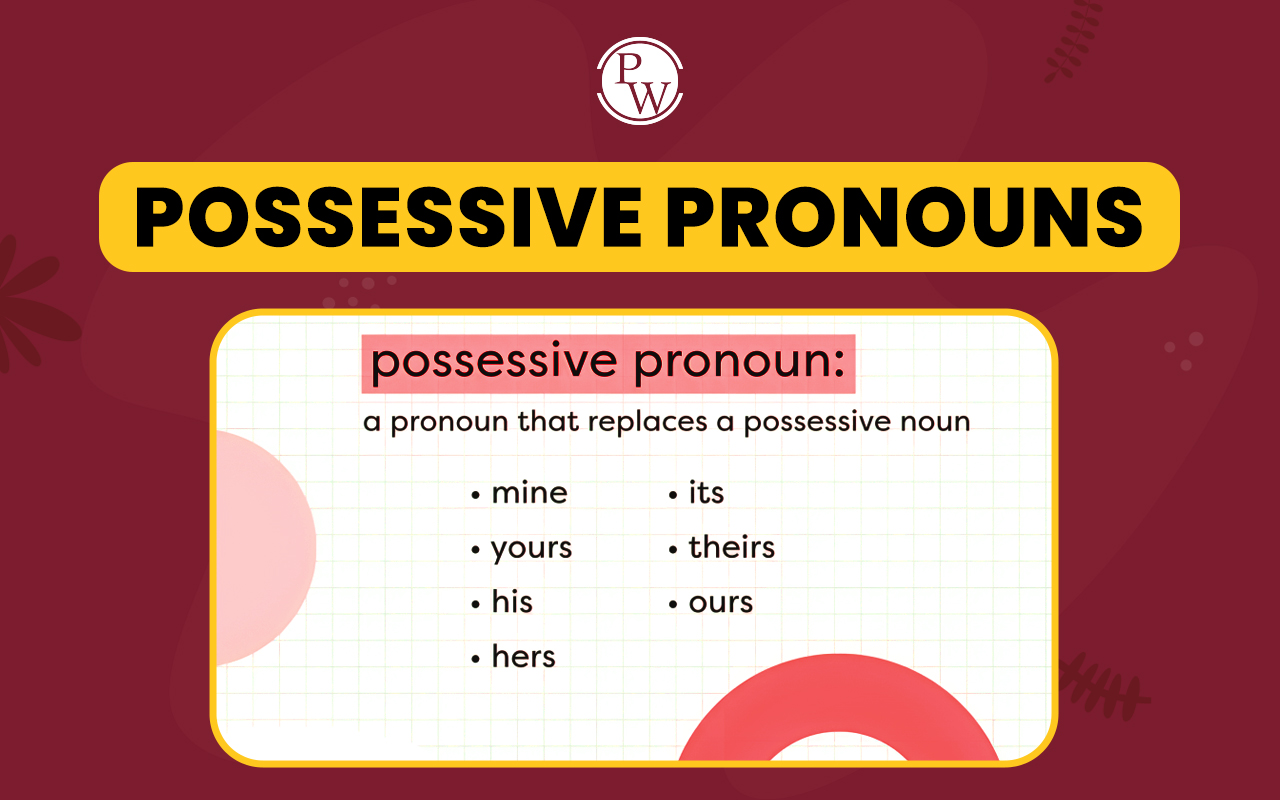
An Indefinite Pronoun is a word used to refer to people, places, or things without saying exactly who or what they are. Unlike definite pronouns like he , she , or they, which refer to specific people or things, indefinite pronouns are more general.
This article will help you learn what is indefinite pronoun, explore a list of indefinite pronouns, and see lots of indefinite pronouns examples and indefinite pronoun sentences. Let's get started.
What Is an Indefinite Pronoun?
An indefinite pronoun is a pronoun that does not refer to a specific person, place, or thing. These pronouns are used when the noun being referred to is unknown, undefined, or general. They can be used in both singular and plural forms, depending on the context.
For example:
-
Someone left their bag in the classroom.
-
Many were invited to the seminar.
-
Nothing can change the past.
Why Are Indefinite Pronouns Important?
Knowing what indefinite pronoun is helps you to write and talk better. You will not necessarily know someone or something’s particular name, and it is okay. Indefinite pronouns examples correctly used make your talking and writing versatile and fun. Additionally, knowing what is indefinite pronoun improves your grammar.
| Related Articles | |
| Pronouns | Conjunctions |
| Preposition | Adverbs |
| Adjcetives | Abstract N ouns |
Types of Indefinite Pronouns
There are two main types of indefinite pronouns: singular and plural. Let’s understnd the meaning of both the types of indefinite pronoun below:Singular Indefinite Pronouns
Singular indefinite pronouns refer to one person, thing, or idea and require a singular verb. They highlight individual items within a group, even if the identity is unknown. Pronouns ending in -body , -thing , or -one typically fall into this category. Examples- Everyone is welcome at the meeting.
- Somebody left their notebook in the library.
- Each student has a schedule.
Plural Indefinite Pronouns
Plural indefinite pronouns are words that refer to more than one person, place, or thing without specifying exactly who or what. Because they talk about multiple entities, they need to be paired with plural verbs. These pronouns are used to replace nouns in sentences when you want to refer to a group or collection in a non-specific way.How to Use an Indefinite Pronoun?
Indefinite pronouns can be tricky to use, but understanding them is essential for clear writing. These pronouns refer to people, places, or things without specifying exactly who or what they are. It’s important to match the pronoun with the correct verb form to maintain proper grammar. Singular indefinite pronouns, such as everyone , nobody , and someone , should always be paired with singular verbs. For example , in the sentence, “ Everyone is ready for the game,” the pronoun ' everyone' takes the singular verb ' is' . On the other hand, plural indefinite pronouns like many , few , and both require plural verbs. For instance, “ Few were able to attend the meeting” uses ' few' with the plural verb ' were' . Some indefinite pronouns, such as all , some , and none , can be either singular or plural, depending on the context: “ All of the cake is eaten” (singular) versus “ All of the students are present” (plural).Points to Remember When Using Indefinite Pronouns
Before using indefinite pronouns, keep these important rules in mind:
-
Singular indefinite pronouns take singular verbs.
-
Example: Everyone is responsible for their actions.
-
Plural indefinite pronouns take plural verbs.
-
Example: Few are willing to accept the challenge.
-
Some indefinite pronouns (such as ‘all’, ‘some’, and ‘none’) can be singular or plural, depending on the context.
-
Example (Singular): All of the water is contaminated.
-
Example (Plural): All of the students have completed their assignments.
-
Use ‘his or her’ or ‘they’ to refer back to singular indefinite pronouns.
-
Example: Each of the employees must submit his or her report by tomorrow.
-
Example: Someone left their phone on the desk. (Using 'they' for gender neutrality)
Indefinite Pronouns and Definite Pronouns
Let's compare:
Definite pronouns: he, she, they, it (speak of a particular person)
Indefinite pronouns: someone, nobody, everything (do not say who exactly)
Mastering the difference allows you to know what is indefinite pronoun well and apply the proper indefinite pronouns examples to your writing or projects.
When to Use an Indefinite Pronoun?
Here are 4 simple uses:
1. Talking About People (No Names)
-
Use: someone, somebody, anyone
-
Example: Someone knocked on the door.
2. Talking About Things
-
Use: something, nothing, everything
-
Example: Nothing can stop us!
3. In Negative Sentences
-
Use: nobody, no one
-
Example: Nobody knew the answer.
4. Showing Possession
-
Add ’s
-
Example: Somebody’s pencil is here.
Indefinite Pronouns Practice Questions
Practicing different types of indefinite pronouns improves your understanding of how they function in sentences. Below are questions to test your knowledge of indefinite pronouns.1. Fill in the B lanks with the Appropriate Indefinite Pronoun
- a) __________ left their umbrella in the office.
- b) Has __________ seen my keys?
- c) __________ of the cookies were eaten at the party.
- d) __________ can join the club if they are interested.
- e) __________ was left after the storm.
- a) Someone left their umbrella in the office.
- b) Has anyone seen my keys?
- c) All of the cookies were eaten at the party.
- d) Anyone can join the club if they are interested.
- e) Nothing was left after the storm.
2. Choose the Correct Indefinite Pronoun:
- a) __________ has taken the last piece of cake. ( Anyone/Someone )
- b) __________ knows what happened yesterday. ( Nobody/Everybody )
- c) __________ of the students were present at the lecture. ( All/Few )
- d) __________ was able to solve the problem. ( No one/Everyone )
- e) __________ finished their homework before the deadline. ( Both/Each )
- a) Someone has taken the last piece of cake.
- b) Everybody knows what happened yesterday.
- c) All of the students were present at the lecture.
- d) No one was able to solve the problem.
- e) Each finished their homework before the deadline.
3. Correct or Incorrect? Identify if the Sentence is Correct or Needs Fixing
- a) Nobody isn’t allowed to enter the room.
- b) Everyone have completed the task.
- c) Somebody’s car is parked outside.
- d) Few know about this secret.
- e) Anyone are welcome to join.
- a) Incorrect – Should be “ Nobody is allowed to enter the room.”
- b) Incorrect – Should be “ Everyone has completed the task.”
- c) Correct – Somebody’s car is parked outside.
- d) Correct – Few know about this secret.
- e) Incorrect – Should be “ Anyone is welcome to join.
Now you know what is indefinite pronoun, how to use them, and why they matter! Use the list of indefinite pronouns and make your own indefinite pronoun sentences. The more you practice, the better you’ll get at using these cool little words.
Keep reading, keep learning, and don’t forget to share your indefinite pronouns examples with your friends.
In conclusion, understanding indefinite pronouns helps you express general ideas more clearly and effectively. These pronouns allow you to talk about people, things, or amounts without focusing on specific details. By practicing their correct use and avoiding common mistakes, you can improve your writing and communication. With a little attention to detail, you'll be able to use indefinite pronouns naturally and confidently, making your sentences more engaging and easy to understand. Join Online Class for Kids Now!!| Related Articles | |
| Reflexive Pronouns | Possessive Pronouns |
| Interrogative Pronouns | Relative Pronouns |
| Object Pronouns | Demonstrative Pronouns |





